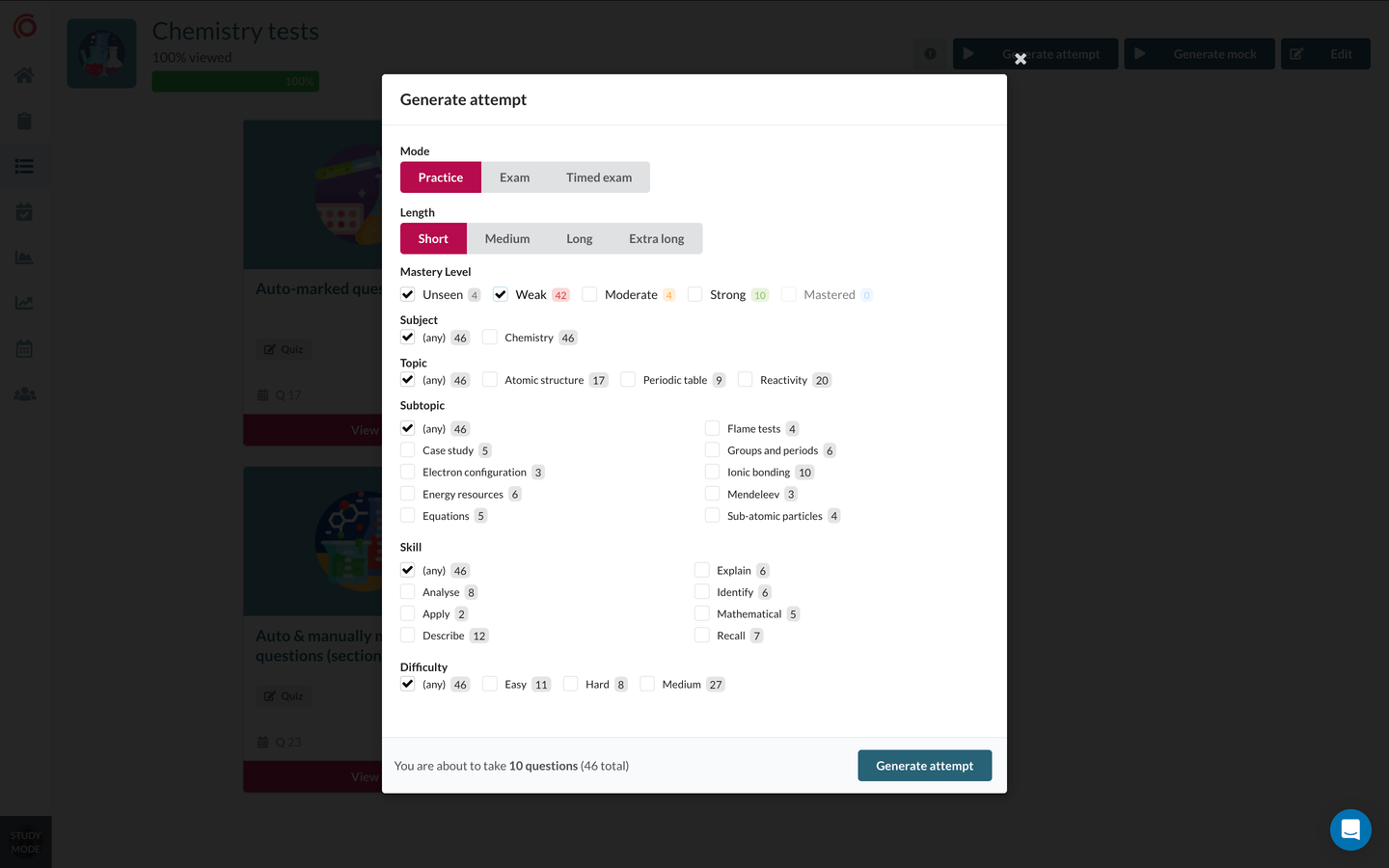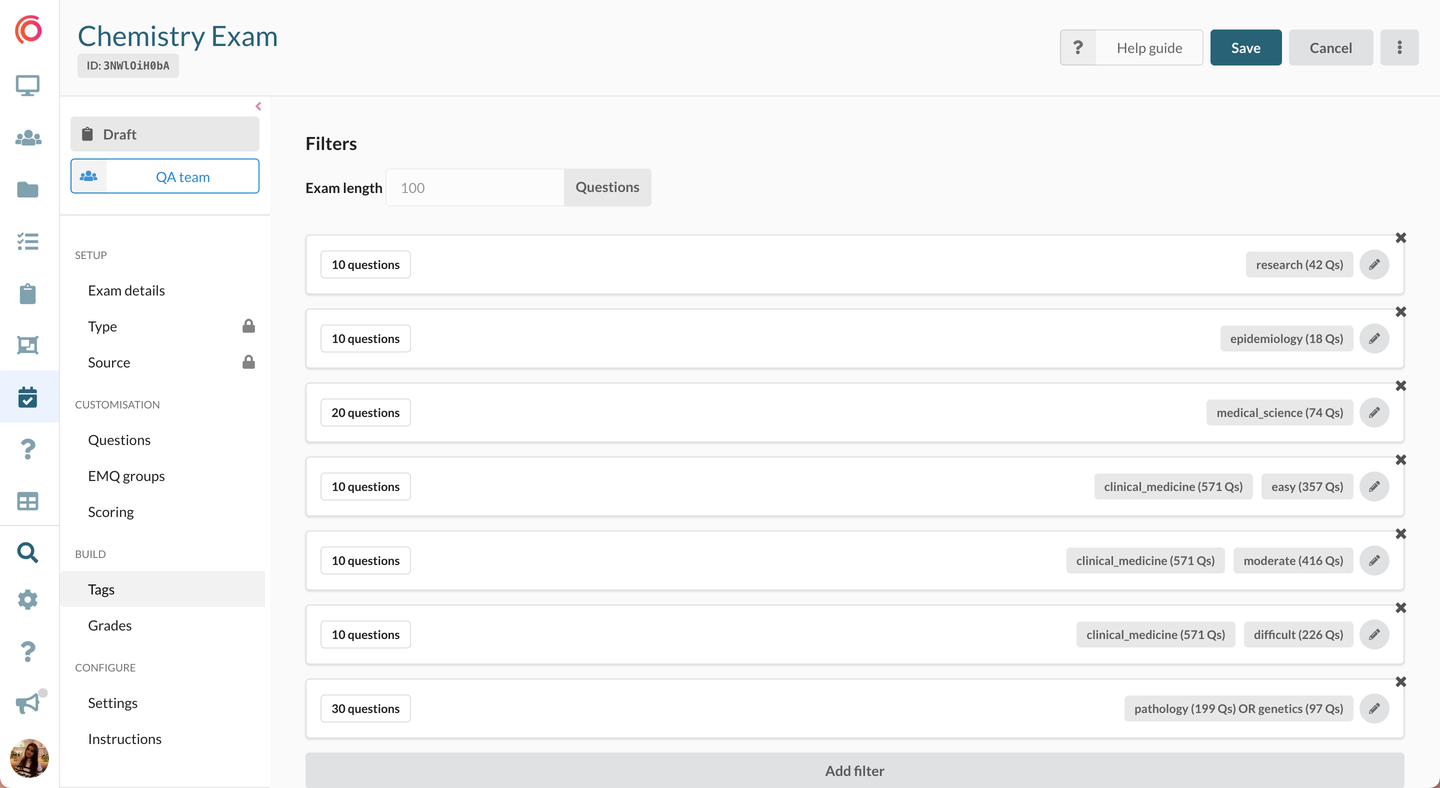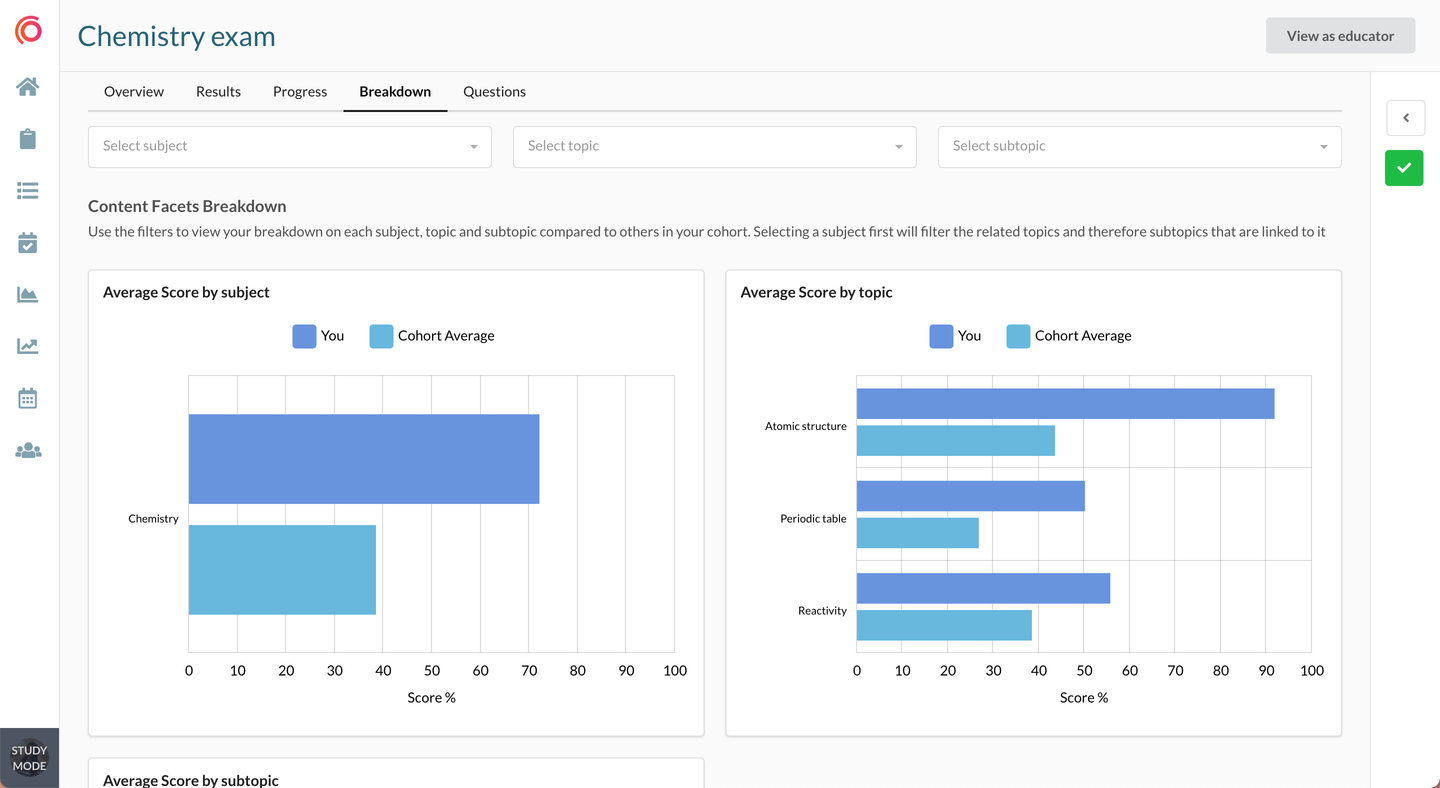Online question banks are a powerful tool for both educators and candidates, offering a streamlined approach to creating, managing, and practising assessments.
What is a question bank?
A question bank is a collection of questions used for assessments such as exams or quizzes. Often categorised by topics, it enables educators to select relevant questions for specific objectives.
Question banks can be singular or divided into multiple areas, allowing subject matter experts to contribute independently. Well-designed banks typically contain hundreds or thousands of questions, offering variety and supporting randomisation for fairer, more secure assessments.

Why use an online question bank software?
A modern online question bank software allows questions to be created, stored, and shared, often with features like randomisation, tagging, and automatic grading. These tools save educators time and provide candidates with diverse practice material to improve their understanding and exam performance.
Key Benefits:
- Flexible question creation - Create diverse question types like multiple-choice, drag-and-drop, or essay-style with tools for multimedia, formulas, and rich text, enabling high-quality, engaging assessments.
- Tagging and organisation - Use tags to categorise questions by subject, topic, difficulty, or skill, making it easy to build exams or tailored practice sessions.
- Enhanced security - Unique exams with randomised questions and orders reduce collusion and ensure fairness, especially in high-stakes or remote assessments.
- Improved student engagement - Customised practice attempts and adaptive questioning keep students engaged while tailoring difficulty to their needs.
- Time-saving for educators - Using filters and tags and automated grading streamline exam creation and scoring, reducing administrative workloads. Adopting online question bank software improves efficiency, fairness, and learning outcomes for both educators and students.
What are the types of question banks?
Online question banks can be used in different ways. Synap has two standout features that make it invaluable for both educators and students, which are dynamic exams and customised practice attempts.
1. Dynamic exams:
One of the key benefits of online question banks is the ability to create dynamic exams. These exams pull questions from a large, centralised question bank based on specific tags, such as topic, difficulty level, or skill. This feature allows educators to:
- Generate unique exams for each candidate: With randomised question selection, no two exams need to be identical, reducing the risk of cheating.
- Save time on exam creation: Instead of manually curating every question, educators can rely on tagging systems to create balanced, comprehensive assessments.
- Advanced Logic: A robust online question bank software includes advanced filtering logic, such as using 'AND' and 'OR' rules, to combine multiple categories when selecting questions.
- Ensure coverage of the curriculum: By tagging questions across all topics, exam administrators can guarantee their exams cover the breadth and depth of the subject matter.
Dynamic exams not only make test creation more efficient but also provide a level of personalisation that wasn’t possible with traditional paper-based assessments.

2. Student-driven practice:
For students, online question banks offer an incredible opportunity to take control of their learning through generating **customised **practice attempts. By leveraging tags, candidates can:
- Focus on their strengths and weaknesses: Students can filter questions by topic, difficulty, or areas of weakness, making study sessions more focused and effective. A good online question bank software also enables custom test creation across multiple topics, promoting active learning.
- Track their progress over time: Many platforms include analytics that allow students to see how their performance improves with each attempt.
- Build confidence before exams: By generating their own practice tests, students can simulate the exam experience, helping them to identify gaps in knowledge and build test-taking skills.
This self-driven approach increases student engagement and helps them become better prepared for assessments.

FAQs for online question banks
- How many questions should I have in my question bank? Aim for at least 2-3 times the number of questions needed per exam to ensure variety and avoid repetition. Larger banks (hundreds or thousands) are better for dynamic or frequent assessments.
- Can I organise my questions into categories? Yes, with Synap you can use tags to group questions by Subject, topic, difficulty, or skill for easier selection.
- What types of questions can I add to my question bank? Most systems support multiple-choice, essay, true/false, drag-and-drop, multimedia-based questions and more. All of these question types can be used within question banks.
- How do I track the performance of questions in my bank? Use analytics tools to monitor question difficulty, discrimination, and student performance.
- How can I ensure my question bank stays up to date? Regularly review and update questions to reflect current learning objectives or standards.
- Can I create different tests from the same question bank? Yes, use filters to build exams based on specific topics, difficulty levels, or skills.
- How do I include mandatory questions in an exam? Use tagging to categorise mandatory questions, ensuring they are always included regardless of randomisation.
Streamline your online exams with Synap’s question banks
Learn how Synap’s powerful question banks simplify exam delivery, create dynamic assessments, and empower students to generate personalised practice tests. Try it yourself with a tailored demo and enjoy a 14-day free trial today!
%20(2).png)


